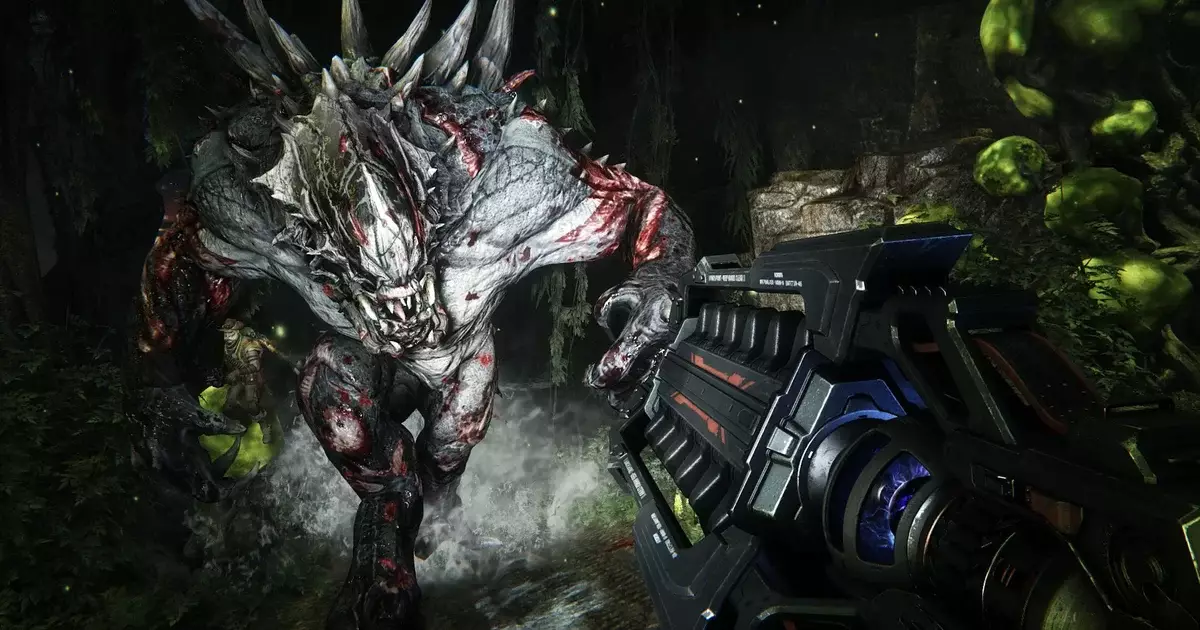Evolve, for many, remains a testament to ambitious design hamstrung by commercial missteps and a questionable approach to monetization. The game showed promise as a daring asymmetrical shooter—an exhilarating chase between a formidable monster and a team of hunters with specialized skills. The core concept was compelling: blend stealth, strategy, and adrenaline in a high-stakes environment. Yet, the implementation was marred by a relentless grind and a predatory reliance on paid content, ultimately tarnishing its potential and alienating its dedicated community.
In reflecting critically on Evolve’s downfall, it becomes evident that the game’s creative foundation was innovative enough to merit further exploration. However, the approach to progression and monetization overshadowed its core mechanics. This raises important questions: could a different business model have preserved the game’s inventive spirit? Might focusing solely on gameplay rather than stoking consumer fatigue with micro-transactions have transformed Evolve into a true genre pioneer rather than a cautionary tale? These are the avenues that, had they been explored, could have allowed Evolve to evolve into something genuinely groundbreaking.
Imagining an Unconventional Direction for Evolve’s Sequel
The cancellation of Evolve 2, as revealed through concept art and pre-production snippets, is a significant loss from a creative standpoint. The intended innovations hinted at a game that would expand the universe through more structured and tailored experiences—perhaps a hybrid between linear missions and open-world exploration. The concept of a large-scale asteroid mining facility like the USG Ishimura suggests an appetite for building atmospheric, story-rich settings that deepen player immersion and challenge.
Had these ideas materialized, they might have shifted Evolve from a multiplayer-centric spectacle to an atmospheric, narrative-driven experience. The allure of exploring the “Akhenaten” map, with its alien architecture and insectoid menace, promises a horror-infused environment that could resonate deeply with fans of dark sci-fi. Such a direction could have restored the game’s narrative weight and provided players with a more profound sense of discovery and dread—elements crucial for a memorable horror experience.
Furthermore, the concept of implementing more linear missions could have balanced the chaos of multiplayer with structured storytelling, providing players with tighter narrative arcs and varied gameplay styles. This would have differentiated Evolve from other asymmetrical shooters, placing an emphasis on immersion and world-building while still catering to the desire for adrenaline-fueled hunting.
What Might Have Been: The Cultural and Commercial Implications
The reality is that Evolve’s failure was rooted not merely in design but in the industry’s obsession with live-service schemas that prioritize recurring revenue over artistic innovation. The cancellation of its sequel can be seen as a symptom of industry trends rather than a rejection of the game’s potential. Turtle Rock’s subsequent projects, such as Back 4 Blood, suggest a shift toward grind-heavy, cooperative multiplayer that, while enjoyable, underscores a tendency to lean into familiar formulas rather than push boundaries.
If Evolve 2 had been realized with a focus on storytelling, atmospheric design, and a less cynical approach to expansions, perhaps it could have set a new benchmark for multiplayer horror. It might have demonstrated that players are willing to invest in rich, immersive worlds if the core gameplay is compelling and the monetization respectful of their investment. The visual concepts for alien worlds, insectoid enemies, and claustrophobic environments invite a more mature and ambitious take on the asymmetrical genre—one that combines horror, strategy, and narrative in a seamless package.
The industry’s fixation on quick profit has often come at the expense of creative exploration. But the potential for a game like Evolve—reimagined with a focus on player experience rather than microtransaction revenue—is vast. It is a missed opportunity not only for Turtle Rock and their community but for the evolution of the genre itself.
Looking Forward: Lessons from the Past and a Hope for the Future
While the canceled sequel remains a tantalizing “what if,” it prompts developers and fans alike to reflect on what could be achieved if creative ambition is prioritized over commercial expediency. The interest in resurrecting other niche franchises like Aliens Vs Predator demonstrates that there is a resilient community eager for innovative and genuinely engaging experiences. Perhaps, one day, a studio with the right vision and values will pick up the mantle, transforming these abandoned concepts into groundbreaking games.
In the meantime, the legacy of Evolve endures as a reminder of what might have been—a game replete with inventive ideas that were ultimately drowned out by the noise of industry trends. It holds lessons for future projects: that groundbreaking ideas need nurturing, that gameplay should be king, and that monetization strategies must respect players’ trust and passion. The whispered promises within concept art and pre-production documentation serve as a testament to the unfulfilled potential lurking beneath Evolve’s fractured exterior.
The future for Turtle Rock Games remains uncertain, but their past efforts continue to inspire those who believe that innovation need not be sacrificed at the altar of profit. Maybe, just maybe, the ideas that once sparked the canceled Evolve 2 will someday find new life—reclaimed not by corporate interests, but by creators dedicated to reimagining the boundaries of multiplayer horror.


Leave a Reply